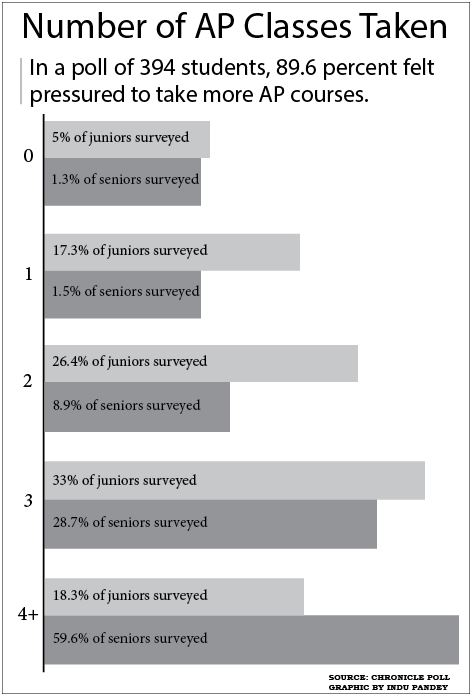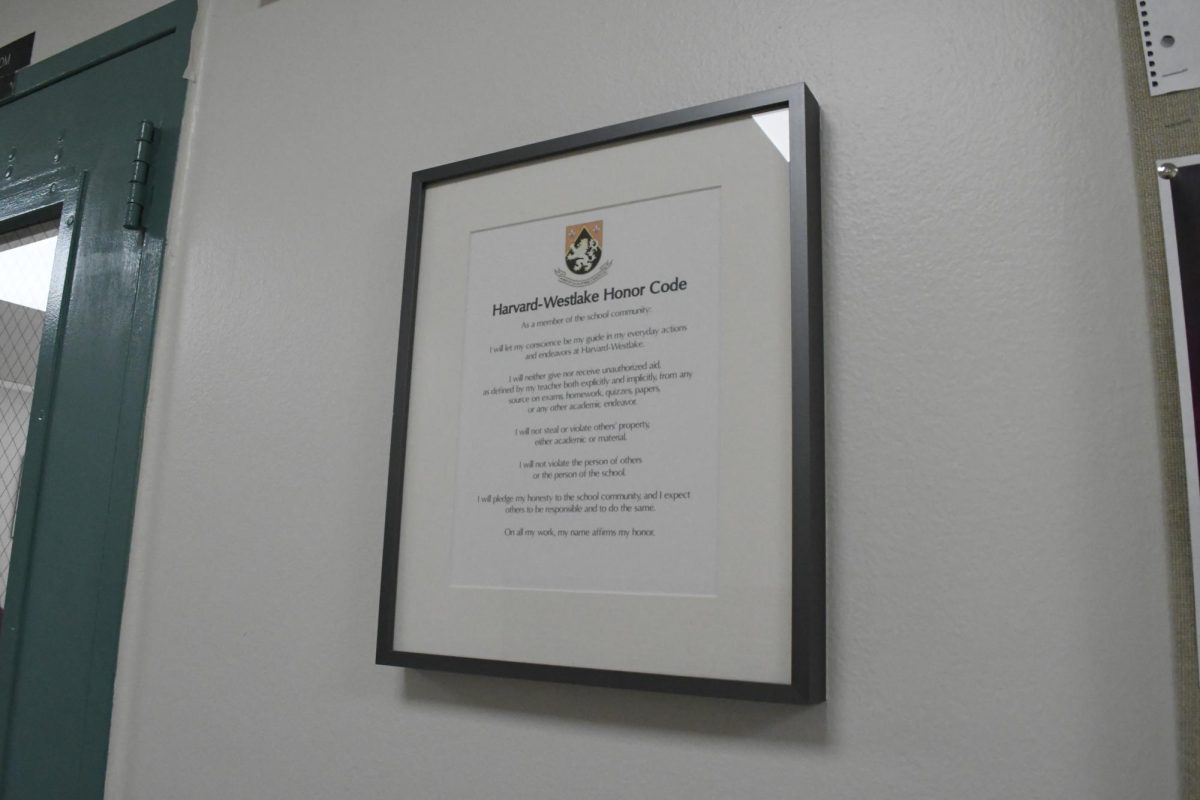The Faculty Academic Committee made a formal recommendation to President Rick Commons to limit the number of Advance Placement courses that upper school students can take and to no longer provide additional grade point weighting for honors and AP courses.
If approved by Commons and the Board of Trustees, the new policies would begin with the current seventh graders, FAC Chair and math teacher Kent Nealis said.
Nealis said the committee nearly unanimously decided on the limits – four for seniors, three for juniors and two for sophomores – after two years of “contentious” discussions about how to best help students feel less stress and get more sleep while not compromising college admissions outcomes.
“We were, during this process, very much concerned about our strategic position,” Nealis said. “Harvard-Westlake has a reputation – in fact, our mission says ‘educational excellence’ – and so we were guided by that. In fact, in our thinking, this is consistent with educational excellence. Excellence in education isn’t about the volume, it’s about experience. And to somehow exalt an AP over a course that doesn’t have the AP moniker just doesn’t seem right to us.”
First announced in January, the prospect of limits spurred some students to create petitions, saying the policy would compromise their academic freedom.
“The proposed AP limit limits students’ freedom of choice by not allowing them to take the classes they want to take,” Marcus Leher ’18, who created one such petition, said in an email on Feb. 14, before the FAC voted to make the recommendation. “Many students at Harvard-Westlake are strong in academics, and the limit would hinder their ability to display that strength.”
The discussions initially started after workload surveys indicated that students were not getting enough sleep and not necessarily enjoying their Harvard-Westlake experiences, Nealis said.
Another factor was an increase in the number of AP courses students were taking to distinguish themselves in the college process, which, he said, does not work if everybody is doing it or if the courses are too rigorous. Though there may be more students in the same GPA ranges once the limits are put in place, Nealis said there are other ways for students to set themselves apart if they are given the time to do so.
“Maybe the appeal they have to colleges and universities is in the actual course selections that they make,” Nealis said. “If maybe they have less demands on their time in their classes, maybe it gives them opportunities to do things outside the classroom that are going to be in terms of the way colleges look at them advantageous to them. I keep hearing over and over again in the back of my mind the conversations that I’ve had with the deans about colleges and how they go through the selection process. It really just sounds like Harvard-Westlake is always going to get its kids in those good schools. It’s always going to happen.”
The limits may provide an incentive for teachers to develop non-AP alternatives for their courses, Nealis said.
“For me personally, this is giving me an opportunity to develop a non-AP economics course, which would be wonderful,” he said. “We’re hoping that we have now stimulated that process and we will hopefully have a broadened curriculum that includes options.”
Nealis does, however, expect that enrollment will decrease in some courses, like his own AP Economics class.
“Students should take courses because they’re interested in them and want to take them,” he said. “The way I get students to want to take my class is I try to make it an interesting class and I try to be a nice fella. That’s how it’s done.”
The FAC is also considering other options to promote student well-being including changing when the school day starts, having a one week spring break and more three-day weekends or switching to a block schedule, he said.
“The issue of happiness and balance and joyful pursuit of educational excellence is something that is at the forefront of our discussions, and we’re just getting rolling on this,” Nealis said.
This is a developing story and will be updated in the coming weeks.









































